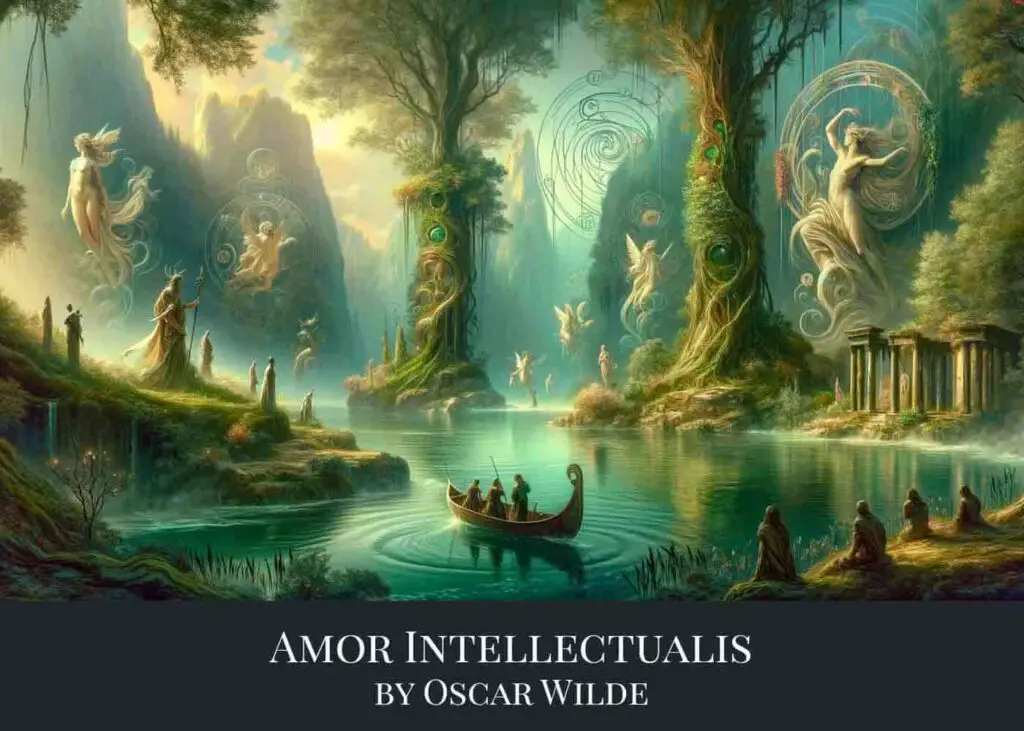
Amor Intellectualis by Oscar Wilde
“Amor Intellectualis” is a poem by Oscar Wilde, featured in his poetry collection Poems. This poem reflects Wilde’s deep engagement with classical literature and his appreciation for the intellectual aspect of love. It opens with vivid imagery of traversing the vales of Castaly, a mythical source of inspiration for poets. The poem delves into the realm of the Muses, ancient Greek goddesses of the arts, symbolizing the poet’s journey through the sea of artistic and intellectual creation. For readers interested in exploring more of Wilde’s poetry, the online book Poems is available at PageVio.
1. The Poem
Oft have we trod the vales of Castaly
And heard sweet notes of sylvan music blown
From antique reeds to common folk unknown:
And often launched our bark upon that sea
Which the nine Muses hold in empery,
And ploughed free furrows through the wave and foam,
Nor spread reluctant sail for more safe home
Till we had freighted well our argosy.
Of which despoilèd treasures these remain,
Sordello’s passion, and the honeyed line
Of young Endymion, lordly Tamburlaine
Driving his pampered jades, and more than these,
The seven-fold vision of the Florentine,
And grave-browed Milton’s solemn harmonies.
Download Amor Intellectualis Poster
Size: 8″ x 12″ (2:3 ratio)
Format: PDF
Copyright information: For personal use only
Note: Actual poster background color is white. For the sample poster, the background is made gray for illustration purpose.
2. Amor Intellectualis Analysis
“Amor Intellectualis” reflects on the journey through the realms of literature and poetry, invoking the names of famous poets and their works as treasures gathered along the way. Let’s break it down:
1. The first half of the poem is metaphorical, describing a journey not in the physical sense but through the exploration of poetry and art. “The vales of Castaly” refer to a place in ancient Greek mythology associated with the Muses, the goddesses of inspiration in literature, science, and the arts. The “sylvan music blown from antique reeds” suggests ancient poetry or music, perhaps from Greek or Roman times, that is not commonly known. The reference to launching a “bark upon that sea which the nine Muses hold in empery” further emphasizes delving deep into the realm of artistic creation and inspiration.
2. The journey is described as adventurous and rewarding (“ploughed free furrows through the wave and foam”), indicating a thorough and fearless exploration of literature. The reluctance to return home until the “argosy” (a term for a large merchant ship, here symbolizing their collection of literary treasures) is well freighted, shows a deep commitment to this exploration.
3. In the second half, the poem lists specific literary works and authors as “despoilèd treasures” gathered from this journey. Sordello, presumably referring to the character from Dante’s “Purgatorio” or Robert Browning’s poem “Sordello,” represents a passion. “The honeyed line of young Endymion” refers to John Keats’ poem “Endymion,” noted for its rich and sensuous language. “Lordly Tamburlaine” refers to the play by Christopher Marlowe, known for its powerful and eloquent language.
4. “The seven-fold vision of the Florentine” refers to Dante Alighieri, “the Florentine,” and his “Divine Comedy,” which is divided into three main parts (Inferno, Purgatorio, and Paradiso), each of which is structured into seven main sections. “Grave-browed Milton’s solemn harmonies” refers to John Milton, particularly to his epic poem “Paradise Lost,” known for its grand and solemn style.
The poem celebrates the rich experiences gained through engaging with literature, portraying it as a journey through a metaphorical sea of poetic inspiration. The treasures gathered from this journey are the works of great poets, which the speaker holds in high regard. The poem itself is a homage to the transformative power of literature and its enduring impact on readers and writers alike.
3. Conclusion
If the lyrical journey of “Amor Intellectualis,” with its evocative imagery from the vales of Castaly to the harmonies of Milton, resonated with you, delving into Oscar Wilde’s poetic repertoire could offer more such enriching experiences.